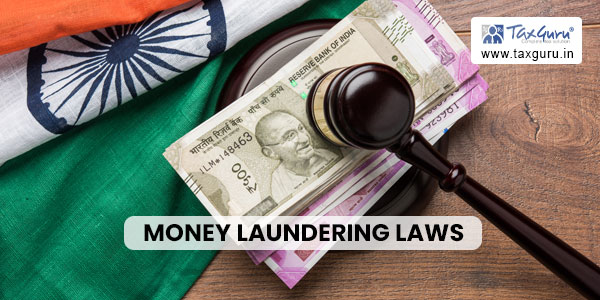Introduction: In the light of recent debates regarding the inclusion of GST within the scope of money laundering offenses, understanding the historical development of money laundering laws is paramount. From its genesis in the United States to its modern implications in global finance, the evolution of money laundering laws unveils interesting and vital insights.
It would be interesting to know about the genesis of money laundering laws amidst the ongoing debates regarding whether or not GST has been included within the purview of money laundering crime. Understanding the historical development of these laws will be helpful in understanding the subject.
The term “money-laundering” arose in United States in 1920s, which was used by the American Police Officers with reference to the ownership and use of launderettes by mafia groups as the launderettes gave them a means of giving a legitimate appearance to money derived from criminal activities. The profits gained through these launderettes were thus termed ‘laundered’.

England was one of the first countries to take legislative action against proceeds of crime on the recommendations of the Hodgson Committee by enacting Drug Trafficking Offences Act, 1986 (later replaced by the Drug Trafficking Act, 1994) which empowered the Courts to confiscate the proceeds of drug trafficking.
The international community deliberated over the dispensation to be provided to address the serious threat posed by the process and activities connected with the proceeds of crime and integrating it with formal financial systems of the countries.
The issues were debated threadbare in the United Nation Convention Against Illicit Traffic in Narcotic Drugs and Psychotropic Substances.
Basle Statement of Principles enunciated in 1989, the Financial Action Task Force (FATF) established at the summit of seven major industrial nations held in Paris imposed obligation on each participating country to criminalize offences related to drug trafficking and money laundering, to which India is a party.
On 31-10-2003, the UN General Assembly adopted United Nations Convention Against Corruption, whose Preamble recognized the importance of preventing, detecting and deterring international transfers of illicitly acquired assets, and strengthening international cooperation in asset recovery.
India, and its version of the PMLA, is ‘merely a cog in this international vehicle’ and as India is a signatory to these treaties, therefore, is bound legally and morally, to adopt the best global practices and respond to the changing needs of the times.
The Act was enacted to address the urgent need to have a comprehensive legislation inter alia for preventing money-laundering, attachment of proceeds of crime, adjudication and confiscation thereof including vesting of it in the Central Government, setting up of agencies and mechanisms for coordinating measures for combating money-laundering and also to prosecute the persons indulging in the process or activity connected with the proceeds of crime. This need was felt world over owing to the serious threat to the financial systems of the countries, including to their integrity and sovereignty because of money-laundering.
Conclusion: The journey of money laundering laws from their origin to the present day highlights the international community’s concerted efforts to tackle the perils of illicit financial activities. The ongoing debate about GST inclusion in money laundering crimes in India is yet another chapter in this evolutionary journey. Understanding the past and present context of these laws can inform future decisions, and contribute to an effective global response to money laundering and other financial crimes.





